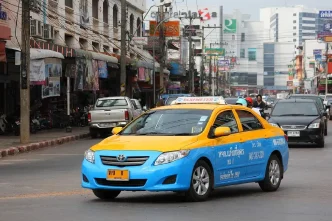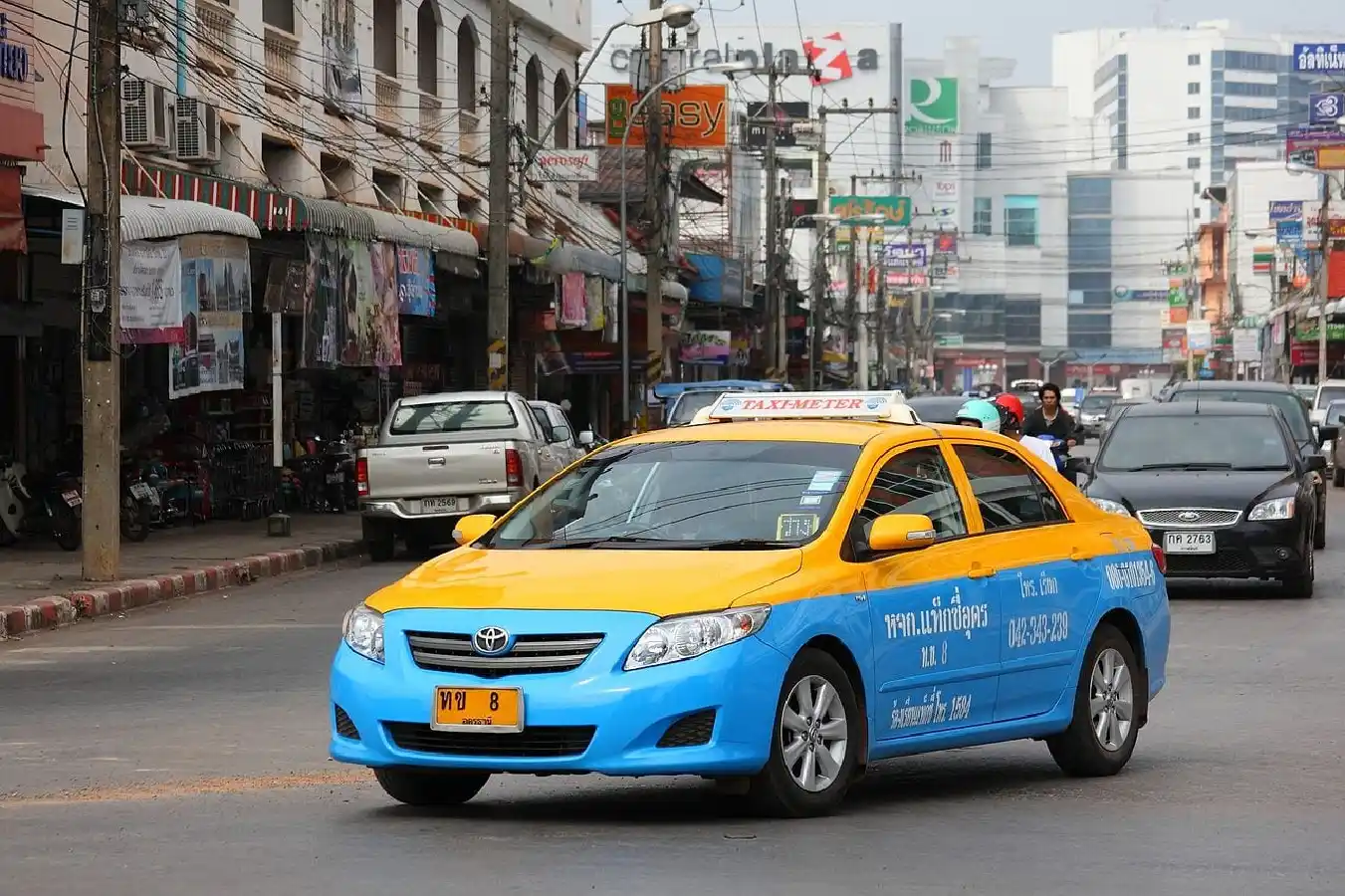Bangkok, a bustling hub for international tourists, has earned an unwelcome distinction as one of the world’s top cities for tourist scams, according to a recent Mastercard report. With nearly half of the reported incidents involving taxis or rental cars, the issue of overcharging and refusal to use meters has become a significant blemish on Thailand’s reputation as a premier travel destination. As the country struggles to recover from the economic fallout of the Covid-19 pandemic, these persistent scams are driving away key markets and raising questions about the future of its tourism industry.
A Systemic Problem Decades in the Making
The problem of taxi scams in Bangkok is far from new. Adith Chairattananon, Secretary-General of the Association of Thai Travel Agents (ATTA), recently highlighted the issue’s deep roots in an interview with a local outlet. “When taxi meters were first introduced in the early 1990s, the service was welcomed — new cars, regulated prices. But in the past 10 years, complaints have skyrocketed” he said. Tourists, particularly from high-spending markets like the Middle East, frequently report drivers refusing to activate meters or demanding exorbitant additional fees mid-journey. Adith described the situation as systemic, pointing to weak law enforcement and a culture of impunity as key contributors.
This lack of accountability has created a vicious cycle. With Thailand’s economy still reeling from the pandemic, some drivers target short-term foreign visitors who are unlikely to pursue legal recourse. “Those who play by the rules struggle, while those who bend them earn more and face no real consequences” Adith noted. The result is a tarnished image for Bangkok’s taxi services, with online travel forums and review platforms awash with warnings about inflated fares and aggressive drivers.
Economic Impact on Thailand’s Tourism Sector
Tourism has long been a cornerstone of Thailand’s economy, contributing over 2 trillion Thai Baht (US$56 billion) in revenue in 2018 before the pandemic struck. By 2023, however, that figure had fallen to 1.67 trillion Thai Baht (US$47 billion), reflecting a slow recovery hampered by both global uncertainties and local challenges. The taxi scam issue is exacerbating these difficulties, particularly as negative experiences spread rapidly through online reviews in languages like Chinese, Cantonese, and Malay, influencing perceptions in major markets such as Hong Kong, Taiwan, Malaysia, and Singapore.
Perhaps most concerning is the shift in behavior among Chinese tourists, who were once Thailand’s most lucrative demographic. Frustrated by unfair taxi practices, many are now opting for alternative destinations like Vietnam, where they perceive better value and fewer hassles. This redirection of tourist traffic represents a significant loss for Thailand, where Chinese visitors previously accounted for a substantial share of tourism revenue. If this trend continues, the economic ripple effects could be felt across sectors reliant on tourism, from hospitality to retail.
Shifting Preferences: The Rise of Ride-Hailing Apps
In response to the pervasive issues with traditional taxis, many travelers are turning to ride-hailing apps like Grab. Although these services often come at a higher cost, passengers value their transparency, upfront pricing, and access to driver information. The convenience of summoning a ride via an app, rather than negotiating with drivers on the street, has also made them a popular choice. This shift highlights a growing distrust in Bangkok’s taxi industry, as tourists prioritize reliability over affordability.
However, the increasing reliance on ride-hailing apps is not a complete solution. While these platforms offer a safer and more predictable experience, they cannot fully mitigate the damage already done to Thailand’s reputation. Negative reviews and personal accounts of taxi scams continue to dominate online discussions, often overshadowing the country’s cultural attractions, vibrant street life, and natural beauty. For every positive story about Thailand’s beaches or temples, there seems to be a corresponding tale of a tourist being overcharged or misled by a driver.
Broader Implications for Tourist Confidence
While taxi scams are a prominent issue, they are not the only factor influencing tourist decisions. Broader concerns about personal safety, organized scam operations, and even rare but high-profile incidents like kidnappings also play a role in shaping perceptions of Thailand as a travel destination. Yet the “no meter” problem remains a persistent irritant, chipping away at confidence among first-time and returning visitors alike. For a country that markets itself as the “Land of Smiles,” these negative encounters strike a particularly discordant note.
The impact is especially pronounced in markets sensitive to word-of-mouth recommendations. In regions like Southeast Asia and East Asia, where social media and community platforms amplify personal experiences, a single bad taxi ride can influence the decisions of dozens of potential visitors. This dynamic underscores the urgency of addressing the issue, not just for the sake of individual tourists but for the broader health of Thailand’s tourism ecosystem.
Challenges in Enforcement and Reform
Addressing Bangkok’s taxi scam problem requires more than public awareness campaigns or isolated crackdowns. As Adith Chairattananon pointed out, the issue is tied to systemic failures in enforcement and regulation. Current penalties for drivers who refuse to use meters or overcharge passengers are often minimal, providing little deterrent. Moreover, the sheer scale of the taxi industry in Bangkok—tens of thousands of drivers operate in the city—makes consistent oversight a logistical challenge.
Proposed reforms, such as stricter licensing requirements or harsher fines, have been discussed for years but have yet to gain traction. Part of the difficulty lies in balancing the needs of drivers, many of whom face economic hardship, with the imperative to protect tourists. Any solution must address the root causes of driver behavior, including financial pressures that may lead some to exploit unsuspecting passengers. Without a comprehensive approach, piecemeal measures are unlikely to restore trust in the system.
A Path Forward for Thailand’s Reputation
Thailand’s government and tourism authorities are at a critical juncture. Restoring confidence in Bangkok’s transportation services could have far-reaching benefits, signaling to the world that the country is serious about improving the visitor experience. Initiatives like public-private partnerships to promote ethical taxi practices, alongside greater investment in ride-hailing infrastructure, could help rebuild trust. Additionally, targeted campaigns in key markets—such as China and the Middle East—could counter negative narratives by highlighting positive developments and showcasing Thailand’s enduring appeal.
At the same time, addressing the taxi scam issue could serve as a model for tackling other challenges facing Thailand’s tourism sector. By demonstrating a commitment to fairness and accountability, authorities can lay the groundwork for a more sustainable recovery, ensuring that the country remains a top choice for global travelers. Collaboration between policymakers, industry stakeholders, and local communities will be essential to achieving this goal.
Looking Ahead: Can Bangkok Turn the Tide?
As Thailand navigates the complexities of post-pandemic recovery, the taxi scam issue remains a stubborn obstacle to restoring its status as a leading tourist destination. While the rise of ride-hailing apps offers a temporary reprieve for wary travelers, the underlying problems of enforcement and accountability persist. For now, the voices of frustrated tourists echo across online platforms, a reminder of the work that lies ahead. Whether Bangkok can reclaim its reputation as a welcoming and trustworthy city remains an open question, one that will shape the future of Thailand’s tourism industry for years to come.
















